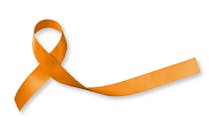The Joint Commission retires select accreditation requirements
The Joint Commission previously announced that it would review accreditation requirements that are above and beyond the Centers for Medicare & Medicaid Services (CMS) Conditions of Participation (CoPs). This initiative aims to help their customers address the many challenges that healthcare is facing by eliminating requirements that do not add value to accreditation surveys so that healthcare organizations and surveyors can focus on other strategies and structures that support quality and safety.
The review began with hospital elements of performance (EPs) that met all of the following criteria:
- The EP does not support a CMS CoP or state regulation.
- The EP has been in effect for at least three years.
- The EP has been scored five times or less during full triennial surveys between 2017 and 2019 (the three years prior to the COVID-19 public health emergency).
Staff across multiple divisions reviewed each of the selected EPs and reported the possible reasons why scoring was low, including organizations are compliant with the requirement because they have adopted it as a standardized practice, the EP is redundant to another requirement, and the EP is difficult to assess compliance objectively and consistently during surveys. As a result of this review, 56 hospital EPs were identified for deletion, and 4 EPs needed minor revisions to make them more effective. Many of these EPs were also accreditation requirements for other programs, and these were deleted or revised from those programs as well.
WHO updates recommendations on HPV vaccination schedule
In a new position paper published, the World Health Organization has updated its recommendations for the human papillomavirus (HPV) vaccine. Of note, the paper states that a single-dose schedule, referred to as an alternative, off-label single–dose schedule can provide a comparable efficacy and durability of protection to a two-dose regimen. The recommendation for alternative single-dose scheduling was initially made by WHO’s independent expert advisory group, SAGE in April 2022.
The position paper is timely in the context of a deeply concerning decline in HPV vaccination coverage globally. Between 2019 and 2021, coverage of the first dose of HPV vaccination fell by 25% to 15%. This means 3.5 million more girls missed out on HPV vaccination in 2021 compared to 2019.
The optimization of the HPV schedule is expected to improve access to the vaccine, offering countries the opportunity to expand the number of girls who can be vaccinated and alleviating the burden of the often complicated and costly follow-up required to complete the vaccination series. It’s vital that countries strengthen their HPV vaccination programs, expedite implementation and reverse the declines in coverage.
WHO now recommends:
- A one or two-dose schedule for girls aged 9-14 years
- A one or two-dose schedule for girls and women aged 15-20 years
- Two doses with a 6-month interval for women older than 21 years
WHO meets with Chinese officials on current COVID-19 situation
A high-level meeting took place on December 30 between the World Health Organization and China about the current surge in COVID-19 cases, to seek further information on the situation, and to offer WHO’s expertise and further support.
High-level officials from China’s National Health Commission and the National Disease Control and Prevention Administration briefed WHO on China’s evolving strategy and actions in the areas of epidemiology, monitoring of variants, vaccination, clinical care, communication and R&D.
WHO asked for regular sharing of specific and real-time data on the epidemiological situation — including more genetic sequencing data, data on disease impact including hospitalizations, intensive care unit (ICU) admissions and deaths — and data on vaccinations delivered and vaccination status, especially in vulnerable people and those over 60 years old. WHO reiterated the importance of vaccination and boosters to protect against severe disease and death for people at higher risk.
WHO called on China to strengthen viral sequencing, clinical management and impact assessment, and expressed willingness to provide support on these areas, as well as on risk communications on vaccination to counter hesitancy. Chinese scientists are invited to engage more closely in WHO-led COVID-19 expert networks including the COVID-19 clinical management network. WHO has invited Chinese scientists to present detailed data on viral sequencing at a meeting of the Technical Advisory Group on SARS-CoV-2 Virus Evolution on January 3.
WHO stressed the importance of monitoring and the timely publication of data to help China and the global community to formulate accurate risk assessments and to inform effective responses.
COVID-19 vaccine for children after MIS-C appears safe
A study of children and adolescents who received a COVID-19 vaccination following multisystem inflammatory syndrome (MIS-C) found that there were no reports of serious complications including myocarditis or MIS-C reoccurrence.
About half of participants experienced mild and typical reactions, including arm soreness and fatigue. The study, funded by the National Institutes of Health, demonstrates that it is safe to get a vaccine after having MIS-C. The findings will be published in JAMA Network Open.
The multicenter, observational study helps resolve a lingering question about whether the COVID vaccine can increase the risk of health problems in young people who have had MIS-C, a rare and potentially fatal immunological reaction that can occur following infection with SARS-CoV-2, the virus that causes COVID-19.
The cross-sectional study included 22 medical centers (21 in the United States and 1 in Canada) participating in the NHLBI’s Long-Term Outcomes After the Multisystem Inflammatory Syndrome in Children (MUSIC) study. It enrolled 385 patients aged 5 years or older with prior MIS-C who were eligible for COVID-19 vaccination. Of this group,185 (48.1%) received at least one vaccine dose. The median age was 12.2 years and 73.5% were male. The participants were racially diverse – 24.3% were Black, 31.9% were Hispanic, and 28.6% were white. The median length of time from their MIS-C diagnosis to their first vaccine dose was 9 months.
Of those who received a COVID vaccination following MIS-C, mild adverse reactions – mostly arm soreness and fatigue – occurred in 49% of them, similar to the general population. There were no reports of serious complications, including myocarditis or recurrence of MIS-C, the researchers said.
UTSW researchers map activity of inherited gene variants linked to prostate cancer
UT Southwestern researchers have identified the molecular function of 87 inherited genetic variants that affect the risk of prostate cancer, and the majority appear to control the activity of genes located far away from the risk variants themselves. The findings, published in Cancer Discovery, could lead to better ways to assess cancer risk and new targets for anti-cancer drugs, the study authors say.
Researchers used several approaches to identify which genes serve as targets for the risk alleles. A three-dimensional mapping technique using data from 565 prostate cancer tumors showed that 87 of these risk alleles affected the activity of hundreds of genes.
Although malignant tumors typically arise in the prostate’s epithelial cells, researchers found that the affected genes were often in other tissue types, including stromal cells and smooth muscle cells that support the epithelial cells. Most of the risk alleles appeared to alter the activity of these genes, which produced proteins known to be involved in molecular pathways for development, apoptosis (programmed cell death), and metabolism, among other cellular processes.
Study leader Ram Mani, Ph.D., said some alleles had opposing activity on the multiple genes they control. For example, one allele known as rs8102476 simultaneously increased the activity of one gene while decreasing the activity of a neighboring gene. The risk alleles also had significant interaction with genes that acquired nonheritable mutations associated with prostate cancer; these interactions appeared to predict how aggressive a patient’s disease became.
COVID-19 vaccine acceptance increased globally in 2022
Global willingness to accept a COVID-19 vaccine increased from 75.2% in 2021 to 79.1% in 2022, according to a new survey of 23 countries that represent more than 60% of the world’s population, published in Nature Medicine. Vaccine acceptance decreased in eight countries however, and nearly one in eight vaccinated respondents were hesitant about receiving a booster dose.
Of the 23,000 respondents (1000 per country surveyed), 79.1% were willing to accept vaccination, up 5.2% from June 2021. The willingness of parents to vaccinate their children also increased slightly, from 67.6% in 2021 to 69.5% in 2022. However, eight countries saw an increase in hesitancy (from 1.0% in the U.K. to 21.1% in South Africa). Worryingly, almost one in eight (12.1%) vaccinated respondents were hesitant about booster doses, and booster hesitancy was higher among the younger age groups (18-29).






